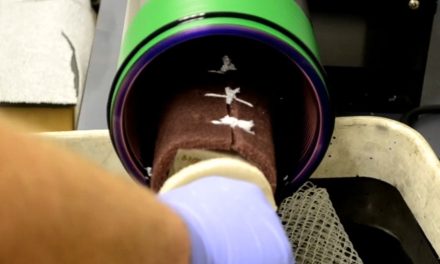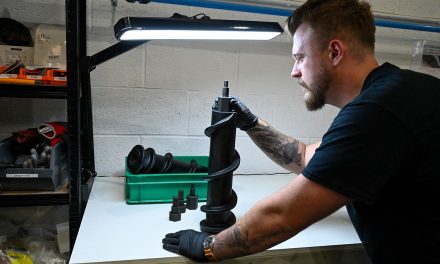With the UK facing an engineering skills shortage, young people seeking to move into the engineering market can enjoy high salaries, exceptional working conditions and a vast choice of roles. Companies are finding new and tempting ways to attract the best talent on the market to join their teams, including supporting their relocation to a new area, providing flexible hours and long breaks, as well as financial benefits such as discounts, pensions and profit-sharing schemes.
With so much on offer, alongside the fulfilment and career progression that working in engineering has always provided, students should seriously consider a career in this exhilarating sector. There are lots of paths to getting into the market, but however you choose to go about obtaining a career in the engineering space there are certain skills, qualifications and personal qualities that are crucial. Here are some of the things you need to enter and succeed in the engineering market.
An Idea Of What You Want To Specialise In
When you first decide that a career in engineering is right for you, consider what aspect of engineering you want to focus on. Whilst you don’t need to have everything completely mapped out from the beginning, it is vital that you know roughly where you want to end up. There are many different types of engineer working on a variety of different types of technology and machinery, so you need to know what you want to specialise in. Whether you want to be a computer engineer or work in complex chemical science labs, it is important that you narrow down your focus before you start your journey towards the world of engineering so that you know what qualifications and skills you will need.
An Interest In Technical Studies
It might sound obvious, but an engineer needs to be technically minded and deeply committed to technology and science. If you only want to be an engineer because you think it is a lucrative career, then this might not be the right path for you. Engineering requires passion and skill, and only a combination of the two will bring success. Skills can be learned and cultivated, but passion and drive are innate instincts that come naturally. If you’re not completely committed to becoming an engineer and don’t think that you’ll enjoy spending every day designing, creating and mending sophisticated solutions, then explore alternative options. There are lots of careers out there, and it’s important that you select the one you’re best suited to.
Basic Maths And Science Skills
To be accepted onto an engineering degree you need to have an A-level in maths and, often, physics as well. Depending on your specialism you may need other qualifications on specific topics, so check before you apply. To stand out from the crowd, try to make sure you have the highest possible grades in your science and maths A-levels and GCSEs by working with a private tutor, who can provide you with the support you need to find the best possible way for you to absorb all the information you need. Sites such as Superprof have a selection of tutors for you to choose from, so you can find the one with the expertise and experience to propel you forward along the path towards a successful career in engineering.
Strong Written And Spoken Communication
Whilst engineers predominantly focus on technical work, in any career the ability to communicate in a professional, polite and succinct manner is crucial to long-term success. You have to be able to make your point well so that your colleagues and industry peers respect your opinion, and this means learning to speak and write well. Make sure that you have good written communication skills and are up to date with the latest engineering terms by reading relevant industry publications so that you always sound professional and well-informed.
A Degree In Engineering
Earning a degree and then working in a graduate engineering role is one of the quickest ways to succeed in engineering, so find the perfect engineering course to suit you. Consider not just the qualification that you need, but also what sort of university you want to attend so that you enjoy your course and get the most out of your university experience. Any extra-curricular activities you undertake at university can be added to your CV, so choose an education provider that has a variety of clubs and societies you can join so that you can network and make happy memoires that will also benefit you in your future career.
An Apprenticeship
University isn’t for everyone, and in many sectors an apprenticeship is a viable means of becoming an engineer without getting a degree. If you’re more practical than academic, then find a company that provides an apprenticeship that will give you the qualifications and experience you need to get ahead in the engineering space without going to university. This approach may take slightly longer than a degree, but apprenticeships can provide additional benefits such as the opportunity to make connections in your chosen industry and get paid whilst you learn, as well as first-hand experience that will help you stand out from other candidates when applying for future engineering positions.
Additional Experience
Even if you’ve earned the highest possible marks on your degree, or been given a great reference from your apprenticeship, you will still need to have additional experience to get a good engineering role. Employers want to see that you are interested in engineering and committed to your professional development, so seek out work experience or a part-time role in a similar industry. Many major engineering companies, such as Rolls Royce, offer work experience schemes, and you can contact them directly or find relevant work experience schemes through your education provider. Many universities work with local employers who can provide work experience placements, so talk to your tutor to learn more about how they can help you to get ahead in your career and enhance your CV.
A Well-Written Application
When you’ve finally found the roles you want to apply for, you need to make sure that your CV, cover letter and any additional documentation you provide is proof read and written in a clear, concise manner. Any errors will make you look sloppy and could put your potential employer off inviting you to an interview, so make a good impression early on by creating neat and professional documents.
Patience and Perseverance
Once you have your qualifications, it’s time to find your perfect job. Search through all the options on offer before you apply and keep your options open by applying for several roles. Remember that finding your dream engineering role isn’t going to be easy, and it might take time for you to find the perfect fit, so be patient and keep applying even if you don’t get the first role you apply for. It might seem disheartening to be rejected, but eventually all of your hard work will pay off and you’ll be rewarded with your ideal engineering job.
Finding your way in the engineering market and achieving the success you want can be a long and arduous road, but with these tips you should be able to make it easier for yourself and be completely prepared for what lies ahead.



